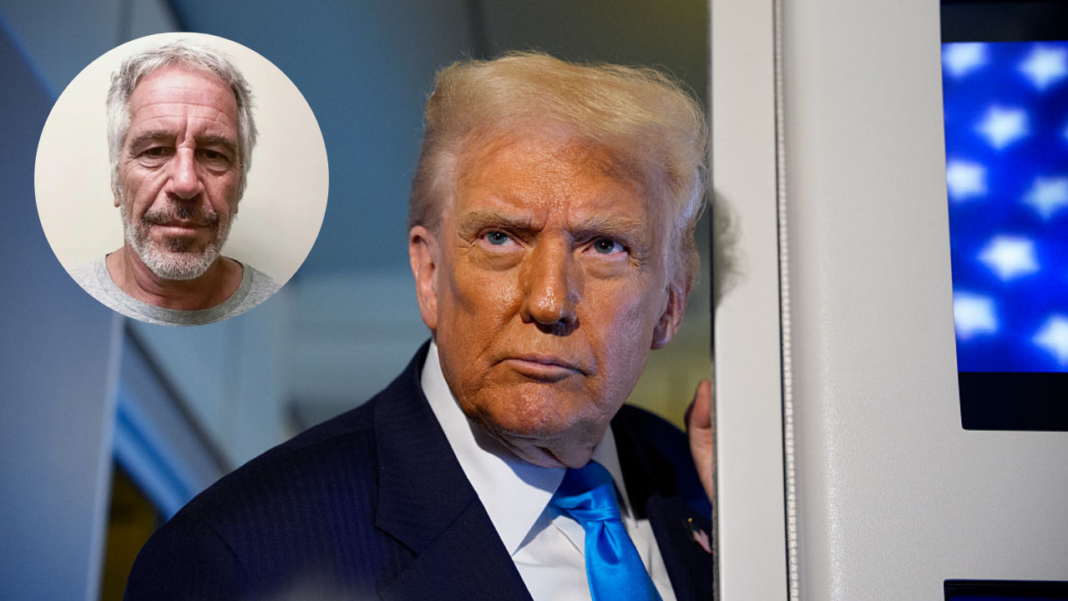The Escalating Epstein Controversy: Democrats Target Trump Amid FBI Document Releases
The recent release of documents from the FBI files concerning Jeffrey Epstein has sparked a political firestorm, particularly among Democrats who have seized upon the revelations to link President Donald Trump to the notorious sex trafficking case. As emails surface tying Trump to the convicted pedophile, tensions between parties have intensified, leading to sharp exchanges and claims of bad faith.
Context of the Document Release
The Pentagon’s decision to publish additional documents regarding Epstein, who faced federal charges and died by suicide in 2019 prior to his trial, has revived scrutiny of his connections with high-profile individuals, including President Trump. The emails revealed by Democrats in the U.S. House Oversight Committee allege that Trump had prior knowledge of Epstein’s misconduct and reportedly spent “hours” with one of Epstein’s victims. This has prompted calls from Democrats for the release of the entire FBI file related to Epstein, arguing that public access to this information is both essential for accountability and justice for the victims.
Democratic Perspectives: Calls for Transparency
U.S. Rep. Summer Lee, a Democrat from Pennsylvania and the driving force behind the document subpoena, expressed her conviction that the newly released emails are sufficiently alarming to necessitate further investigation. “When we passed my motion to subpoena the Epstein files, we knew we’d find damning information,” Lee stated. “Today we learned Trump is alleged to have personal knowledge of Epstein’s crimes.” The focus on these emails emphasizes the broader Democratic agenda calling for transparency.
Lee also highlighted the importance of swearing in Rep.-elect Adelita Grijalva. As the final necessary member for a quorum, Grijalva’s presence could tip the scales toward a full release of the Epstein files, enhancing the Democratic push for uncovering possible complicity among powerful figures.
Republican Response: Defending Trump
In stark contrast, the White House has dismissed the Democrats’ claims as a “fake narrative” intended to distract from their governance challenges. White House Press Secretary Karoline Leavitt firmly rebutted the assertion that the emails implicate Trump. “These emails prove absolutely nothing other than the fact that President Trump did nothing wrong,” she declared, reiterating claims made by Trump that his relationship with Epstein ended due to a falling out caused by Epstein’s nefarious actions.
Leavitt emphasized that Trump had terminated Epstein’s membership at Mar-a-Lago once he learned of the latter’s criminal activities. She framed the Democrats’ actions as a manufactured political strategy meant to overshadow the administration’s achievements and the nation’s pressing concerns.
The Democratic Narrative: Accountability for Victims
Democrats, including notable figures like Rep. Ilhan Omar from Minnesota, have been vocal about their demands for accountability. Omar opined that the public has a right to know who enabled Epstein and expressed dissatisfaction with any attempts to obscure the truth. “Survivors have waited long enough. Release the Epstein files NOW,” she insisted, underscoring the urgency to address the issue of sexual exploitation and the protection of victims.
Ken Martin, the chair of the Democratic National Committee (DNC), further amplified the narrative, alleging a cover-up by the Trump administration and questioning the motives behind Trump’s defense of Epstein. “So the question is,” he postulated, “why is Trump protecting a convicted sex offender instead of pursuing justice for the victims of Epstein’s crimes?”
Rebuttals and Counterclaims
In defense of their stance, the White House strongly criticized the Democrats for redacting the name of the woman who allegedly spent significant time with Trump at Epstein’s residence. Leavitt pointedly noted that Virginia Giuffre, a victim who had worked at Mar-a-Lago, had publicly stated Trump was not involved in Epstein’s criminal activities. This led the administration to label the Democrats’ selective leaks as tactical manipulation rather than genuine concern for justice.
While the political landscape remains charged with allegations and counterclaims, the implications of the documents released from Epstein’s files present a complex and winding narrative. The ongoing debates surrounding transparency, accountability, and political maneuvering highlight the different priorities within Washington, creating an atmosphere ripe for further exploration and investigation.
As this story evolves, both political parties are bracing for an intensive focus on their narratives regarding Epstein and the broader implications for national politics and public trust.



